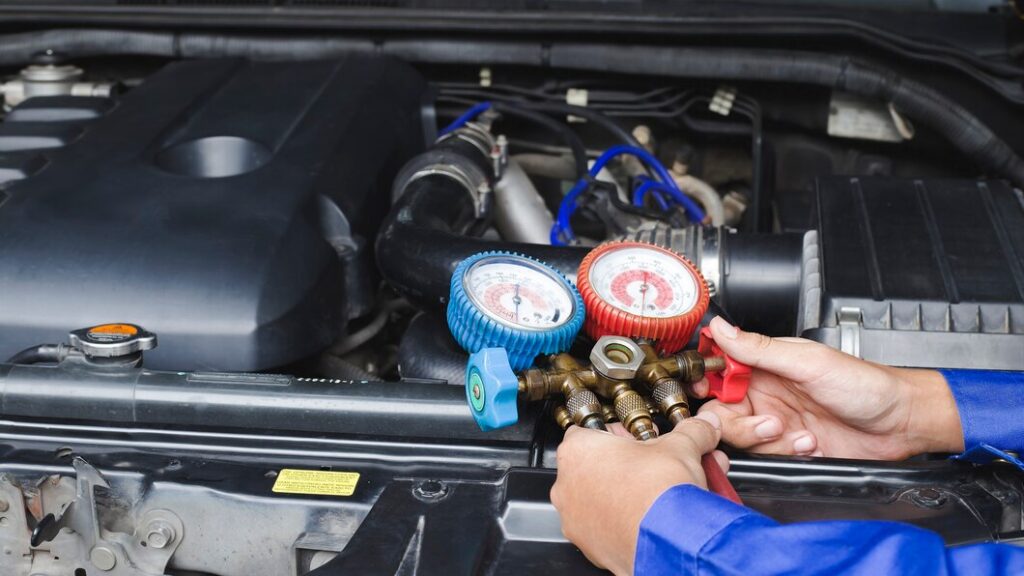The Ultimate Guide to Electric Car Battery Life: Tips, Longevity, and Maintenance

The shift toward electric vehicles (EVs) has brought the electric car battery life to the forefront of discussions. A well-maintained EV battery can last between 10-20 years or 100,000 to 200,000 miles, depending on various factors. As these batteries play a crucial role in vehicle performance, understanding their lifespan and durability is vital for EV owners.
This comprehensive guide explores everything you need to know about electric car battery life, from its influencing factors to actionable tips to extend its longevity. Whether you’re curious about how long EV batteries last or searching for maintenance strategies, this article has you covered.
What Are Electric Car Batteries Made Of?
At the core of every EV is a lithium-ion battery pack. These batteries are preferred due to their high energy density and rechargeability, making them an ideal choice for electric vehicles. Unlike traditional lead-acid batteries, lithium-ion cells are lightweight and compact, enhancing the overall performance of electric cars.
Each battery pack consists of multiple lithium-ion cells grouped into modules. These cells store and release energy efficiently, powering the motor and ensuring seamless operation. Lithium-ion batteries are more than just energy storage units; they represent a revolution in electric vehicle battery durability.
Compared to the batteries in smartphones or laptops, EV batteries are designed for extended use. While your phone’s battery may degrade after just a few years, the robust construction of EV batteries ensures that they can handle thousands of charge and discharge cycles with minimal wear and tear.
Factors That Impact Electric Car Battery Life
Several factors contribute to the overall battery lifespan in electric cars. Understanding these influences is the first step to maximizing the longevity of your EV battery:
1. Temperature Extremes
Temperature plays a significant role in electric car battery life. Prolonged exposure to extreme heat can speed up the chemical reactions inside the battery, leading to faster degradation. On the other hand, extreme cold reduces the battery’s efficiency, temporarily lowering its capacity.
To protect your battery, store your EV in a temperature-controlled environment whenever possible. Many modern electric vehicles are equipped with thermal management systems to regulate the battery temperature and enhance EV battery life expectancy.
2. Charging Patterns
The way you charge your EV also has a major impact on its electric car battery life. Every charge and discharge cycle slightly reduces the battery’s capacity. Rapid charging, while convenient, generates more heat, which can accelerate degradation if used excessively.
Adopting a slow and steady charging habit can go a long way in maintaining your battery’s health.
3. Natural Aging
Just like any other component, EV batteries experience aging. Over time, chemical changes within the cells can reduce their ability to hold a charge. Even if the battery isn’t actively used, this natural aging process, known as calendar degradation, occurs.
Fortunately, manufacturers are continually improving battery chemistries to slow this process and enhance electric vehicle battery durability.
How Long Do EV Batteries Last?
When it comes to how long EV batteries last, the answer depends on the manufacturer, usage habits, and maintenance. On average, most EV batteries are designed to last 10-20 years, making them outlast the typical lifespan of a traditional internal combustion engine (ICE) vehicle.
Many manufacturers provide warranties ranging from 8 to 10 years or 100,000 to 150,000 miles, ensuring peace of mind for buyers. Additionally, advancements in technology mean that the batteries are becoming more durable each year, with some companies aiming to produce million-mile batteries, setting new benchmarks for EV battery life expectancy.
Practical Tips to Maximize Electric Car Battery Life
Proper care and usage habits can significantly extend the battery lifespan in electric cars. Here are some actionable tips to ensure your EV battery performs optimally for years:
- Charge Smartly:
Keep your battery’s charge level between 20%-80% for daily use. Avoid fully charging or discharging unless necessary, as this can strain the cells. - Minimize Rapid Charging:
Use fast-charging stations sparingly. While they’re convenient, frequent rapid charging can increase heat and reduce electric vehicle battery durability. - Avoid Extreme Temperatures:
Park your EV in shaded or temperature-controlled areas to protect the battery from thermal stress. - Follow Manufacturer Guidelines:
Adhere to the specific maintenance recommendations provided by your EV manufacturer. Regular updates to the vehicle’s software can also improve battery performance. - Drive Consistently:
Regular use of your EV helps keep the battery cells active. Avoid long periods of inactivity, which can accelerate calendar degradation.
What Happens When EV Batteries Reach the End of Their Life?
Even after their use in a vehicle, EV batteries don’t become entirely useless. At about 70% capacity, they can still be repurposed for secondary applications, such as:
- Home Energy Storage: Used EV batteries can pair with solar panels to store renewable energy.
- Grid Stabilization: They can be utilized in large-scale energy storage systems to manage power supply.
When a battery is no longer usable, recycling ensures its materials are recovered and reused. Innovations in recycling technologies are allowing up to 95% of raw materials to be salvaged, making EVs more sustainable and eco-friendly.
Signs That Your EV Battery Needs Maintenance
Although EV batteries are designed for long-term use, they still require maintenance and care. Here are some signs that your EV battery may need attention:
1. Reduced Driving Range
If you notice a significant drop in your EV’s range compared to when you first purchased it, this could indicate that the battery is starting to degrade. While a slight reduction in range is normal as the battery ages, a sharp decline might signal the need for maintenance.
2. Charging Time Increases
If it takes longer than usual for your EV battery to reach a full charge, it may suggest an issue with the battery’s charging capacity. The battery may not be able to hold charge as efficiently, or the charging system itself may require servicing.
3. Unusual Battery Temperature
Overheating or unusual temperature fluctuations in the battery could indicate a problem. If your battery feels abnormally hot or cold after charging or driving, it’s a good idea to get it checked by a professional.
4. Error Messages or Warning Lights
Modern EVs are equipped with diagnostic systems that can alert you to battery issues. If you see any warning lights or error messages related to the battery or charging system, it’s important to take your vehicle to a certified service center as soon as possible.
Conclusion
Understanding and maintaining electric car battery life is crucial for any EV owner. By adopting proper charging habits, avoiding extreme temperatures, and following manufacturer recommendations, you can extend the battery lifespan in electric cars and enhance their performance.
Call to Action
For top-quality EV battery solutions, trust KwikFix Auto. Offering a wide range of high-performance batteries from brands like Amaron and Exide, we ensure durability and reliability. Visit KwikFix Auto’s Battery Section or call +91 9950345345 for expert advice and unbeatable deals!
Make your EV journey smoother with KwikFix Auto!
Frequently Asked Questions
Q1. What is the average lifespan of an EV battery?
A1. Most EV batteries last 10-20 years or 100,000-200,000 miles, depending on usage and maintenance.
Q2. Are EV batteries covered under warranty?
A2. Yes, most manufacturers provide 8-10 year warranties, covering significant degradation.
Q3. How does temperature affect battery life?
A3. Extreme heat accelerates aging, while extreme cold reduces efficiency.
Q4. Can EV batteries be recycled?
A4. Absolutely. Up to 95% of battery materials can be recovered through modern recycling techniques.
Q5. How much does it cost to replace an EV battery?
A5. Replacement costs vary but typically range from $5,000 to $20,000.
Q6. Do all EVs lose battery capacity over time?
A6. Yes, but the degradation rate is usually minimal—around 2-3% per year.
Q7. Can I use rapid chargers frequently?
A7. While they’re safe, overuse can lead to faster degradation. Use them only when necessary.
Q8. What are second-life uses for EV batteries?
A8. They can be repurposed for home energy storage, grid stabilization, or industrial applications.
Related Articles
Car AC Gas Filling Cost | Electric Car Battery Capacity | How Car AC Works | How to Clean Car AC Filter | Car AC Repair Cost | AC Chair Car vs Executive Chair Car | Which Gas is Used in Car AC | Does AC in Car Consume Fuel | Why My Car AC is Not Cooling | Xylo Car Mileage with AC





